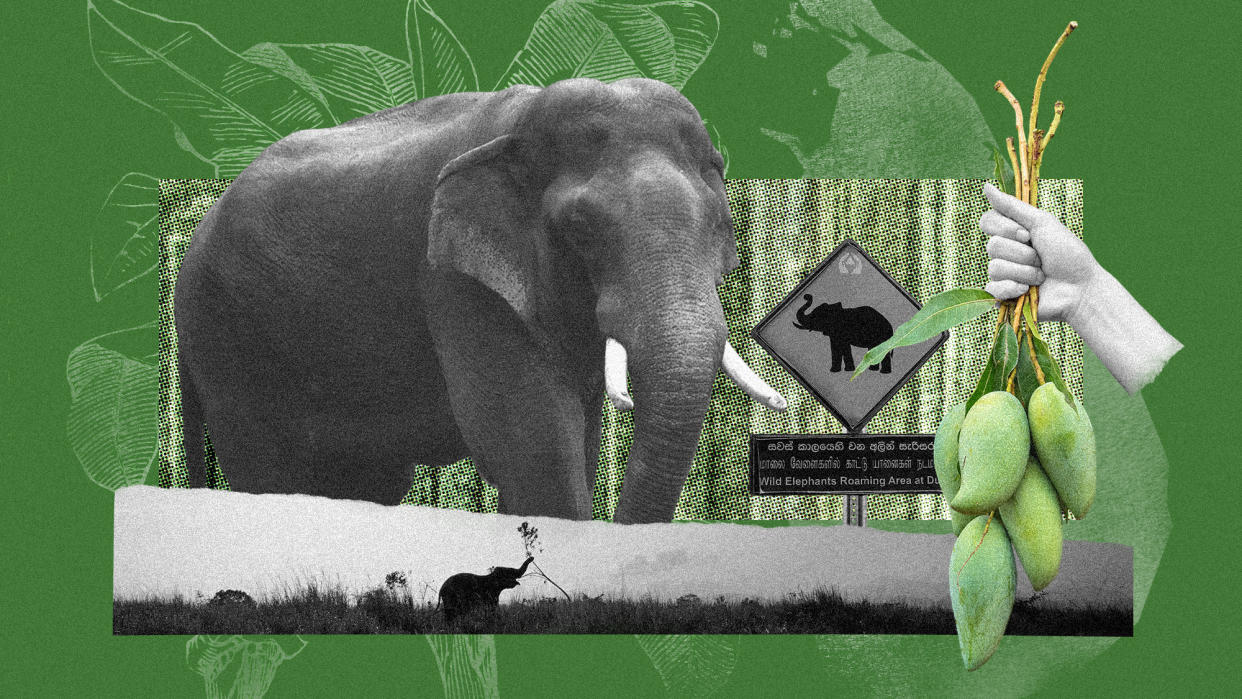Why are people and elephants fighting in Sri Lanka?

People and elephants are increasingly competing for the same land in Sri Lanka, leading to a rising number of deaths among both populations.
Over the past four years, the fatalities have made Sri Lanka the "worst country for human-elephant conflict in the world", said The Guardian. The future of the South Asian country's "iconic elephants" is starting to look "precarious", said the BBC.
A 'delicate balance'
Farmers are increasingly "encroaching" on elephant habitats, "disrupting their food and water sources", said the BBC. "We can see the impact of climate change all around us," Prithiviraj Fernando, chair of Sri Lanka’s Centre for Conservation and Research, told The Guardian. "Fertile land for food production is dwindling," he said. And food crops are "very attractive" to the mighty animals, Fernando told the BBC.
The situation is leading to tragedies. Sumitra Malkandi lives in Thalgaswewa in Kurunegala district, a farming village close to a dense forest. It is "surrounded by coconut, mango and banana trees, which elephants love to feast on", said the BBC. Her husband was trampled to death by an elephant in March last year.
The "delicate balance of human-elephant coexistence is facing unprecedented threats", said The Guardian. Last year, 176 people died in elephant encounters, and 470 elephants were killed – more than double the number of elephant deaths in 2010.
The problem has worsened since the end of the civil war in 2009, as more elephant habitats have been cleared for human activities. This has forced the animals to "trek through human settlements" to access food and water.
Coexistence the 'only way forward'
The death tolls on both sides of this conflict are a "stark reminder" of the "fatal consequences when humans cross paths with these majestic animals", said the BBC. Conservationists are calling on the government to take urgent action.
The problem could also impact tourism. Last year, The Independent reported, a family holidaying near the Yala National Park in the southeast of Sri Lanka had a close encounter with a wild elephant, which charged at their safari truck in search of food. Elephants are the "star attraction" of the country's tourism industry, "bringing in much needed foreign exchange", said Fernando. "We need them more than they need us."
Some "frightened farmers" are taking matters into their own hands. To protect their crops and "keep marauding elephants at bay", they are making deadly homemade elephant traps, said The Guardian. In Hambantota, a man connected his household electricity supply to a fence encroaching on a recognised elephant corridor. It killed four elephants in one day.
There have also been cases of elephants being shot and poisoned. Some have been killed with "jaw bombs" – explosives hidden in food as bait that explode inside the elephant's mouth.
There are fears the situation will escalate further. In January, scientists led by Mia Guarnieri from the University of California, Santa Barbara published a study that concluded that human-elephant clashes would intensify as the climate crisis worsened.
"If things continue as they are, up to 70% of Sri Lanka's elephants will be lost", said Fernando. "Human-elephant coexistence is the only way forward."

